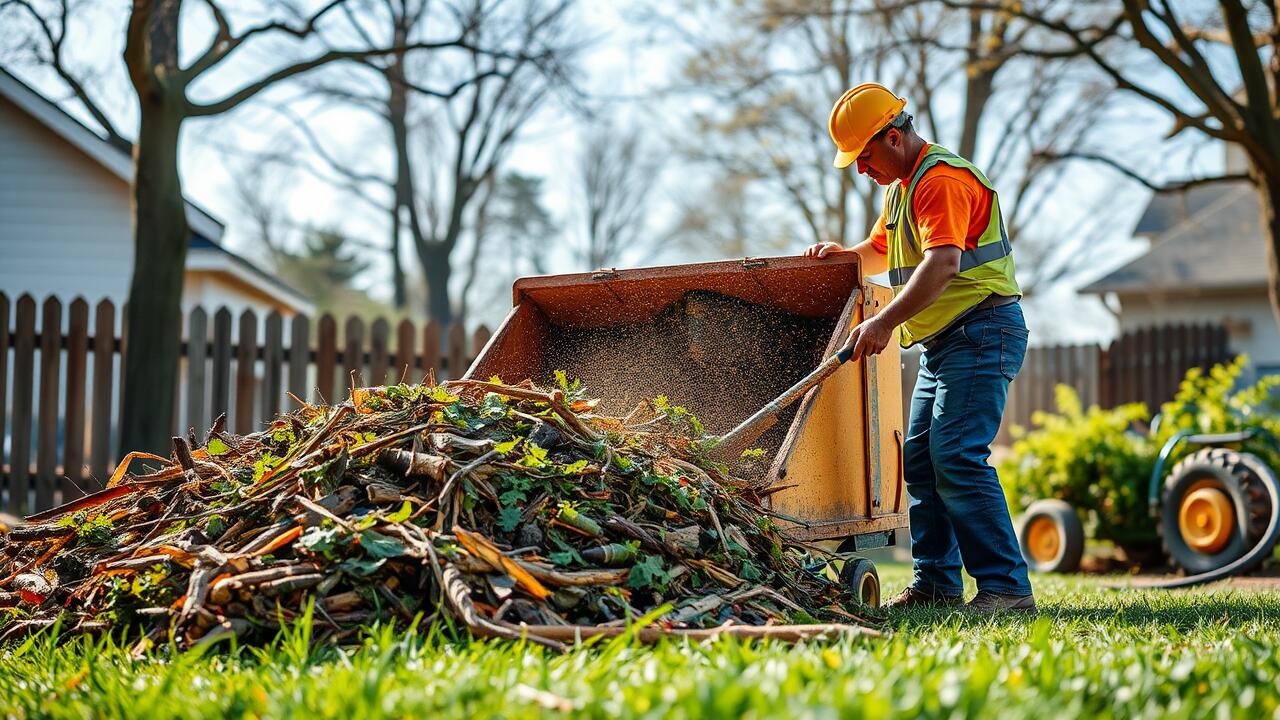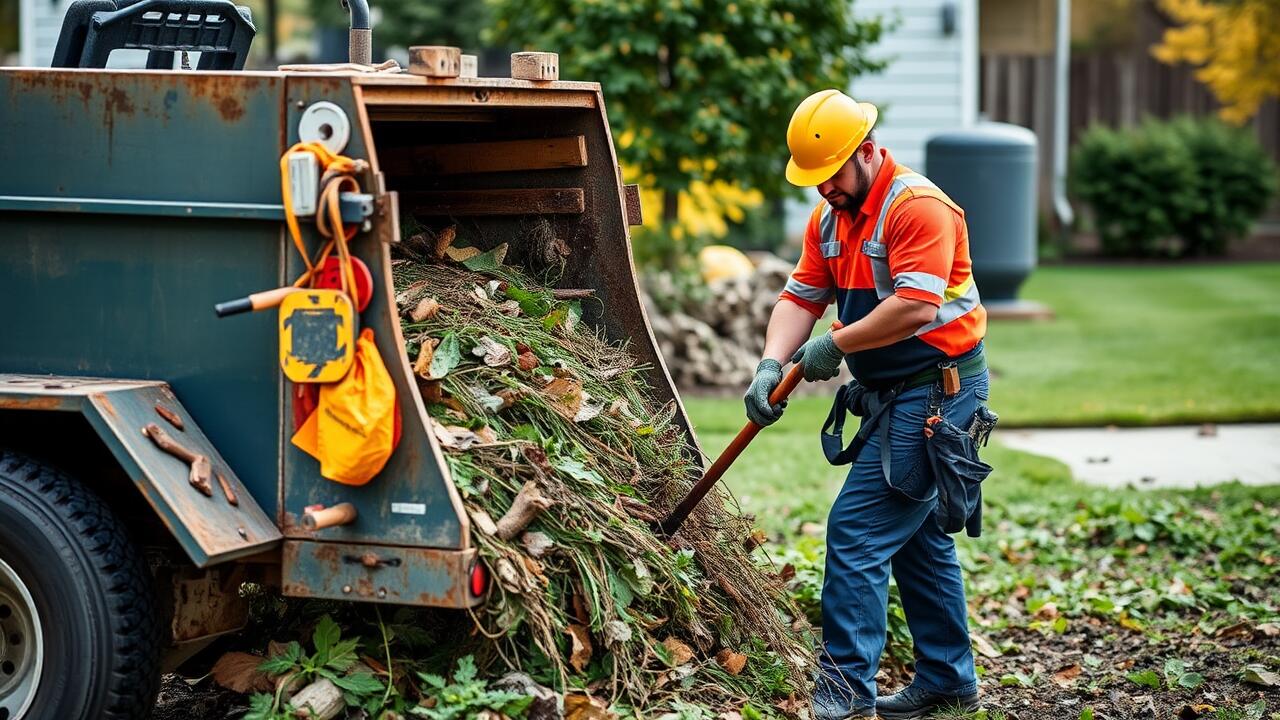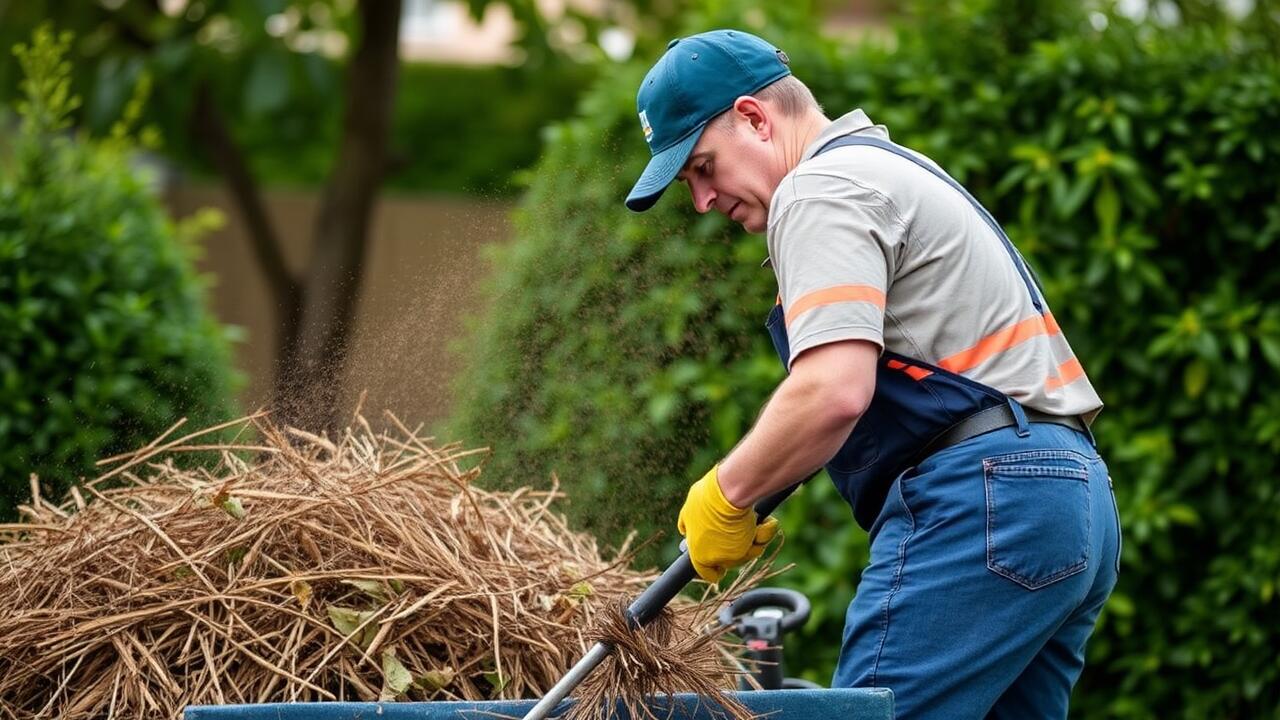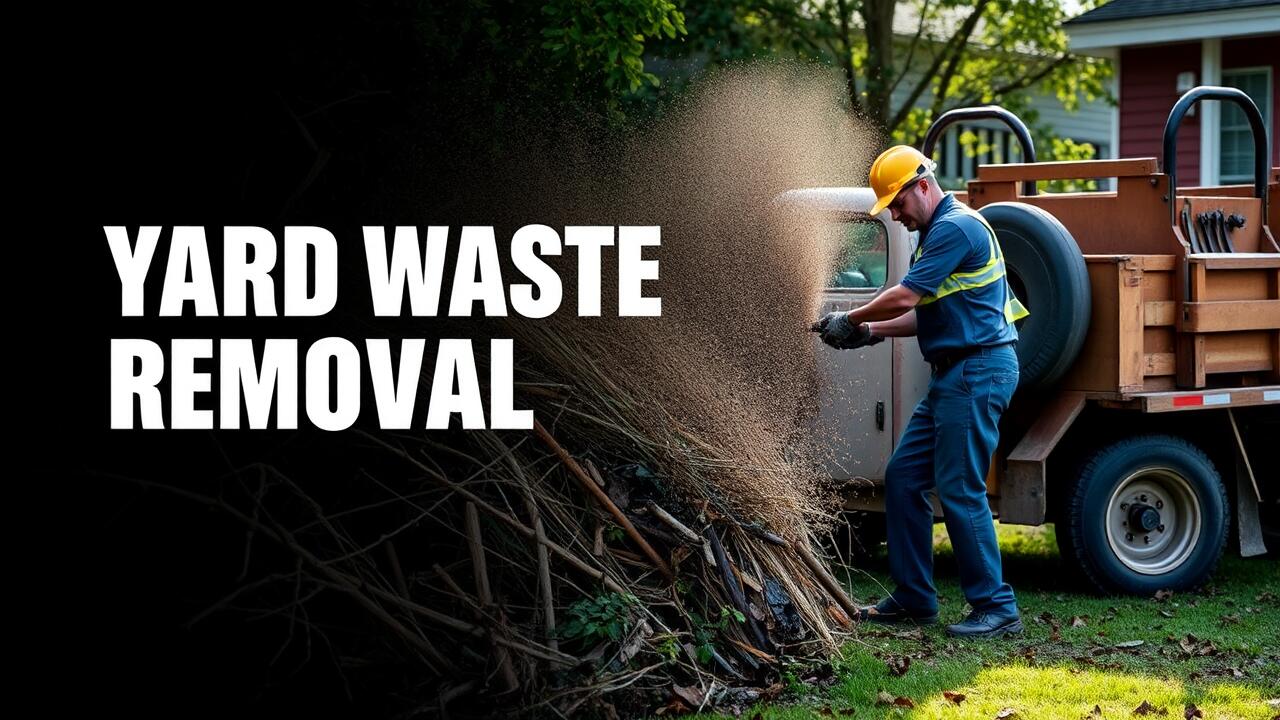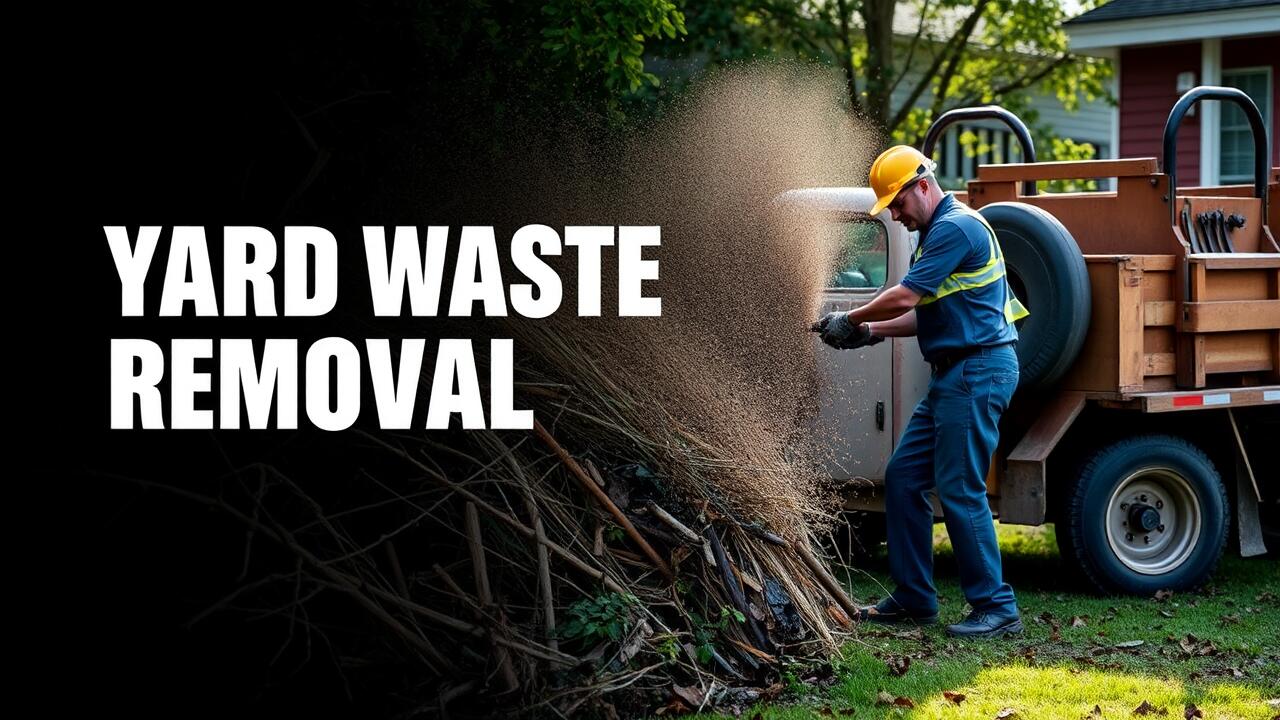
What Not to Compost
Certain materials should be avoided in your compost pile to ensure a healthy and effective composting process. Never include meat, dairy products, or oils. These items can attract pests and create unwanted odors in your compost. Additionally, cooked foods and processed products should stay out of your compost as they take longer to break down and can invite rodents and other animals.
Another category to exclude is anything that has been treated with chemicals, such as yard waste from lawns that have been treated with pesticides or herbicides. These chemicals can leach into the compost and potentially harm your garden. If you find yourself with yard waste that isn't suitable for composting, consider looking for services like "Yard Waste Removal near me" to responsibly dispose of those materials.
Common Mistakes in Composting Materials
One common mistake in composting is including materials that don't break down easily. Items such as meat, dairy, and oily foods can attract pests and create unpleasant odors. Additionally, using treated wood products or charcoal can introduce harmful chemicals into your compost, rendering it unsuitable for gardening purposes. Ensuring that only appropriate organic materials are added can make a significant difference in the health and quality of your compost.
Another frequent error is neglecting to balance the carbon and nitrogen content in the compost pile. A ratio that favors one over the other can lead to slower decomposition or even odors. Incorporating enough brown materials like dried leaves and straw along with green materials such as kitchen scraps helps maintain the right balance. If residents find themselves struggling with excess waste, searching for "Yard Waste Removal near me" can provide alternative solutions while the compost mix is adjusted.
Maintaining Your Compost
Maintaining your compost is essential for creating nutrient-rich soil. Monitor the moisture level regularly; your compost should feel like a damp sponge. If it becomes too dry, add water slowly, mixing it in to achieve an even consistency. On the other hand, if it becomes too wet, you may need to add more dry materials like shredded leaves or straw. This balance will help to promote the right conditions for decomposition.
Turning and aerating your compost pile is another critical aspect of maintenance. Regularly turning the pile ensures that oxygen reaches all parts, which helps microorganisms break down the material efficiently. Use a pitchfork or compost turner to mix the materials every few weeks. If you find yourself overwhelmed with yard waste, consider searching for "Yard Waste Removal near me" to find local services that can assist in keeping your compost pile manageable and clean.
Turning and Aerating Your Compost Pile
Turning and aerating your compost pile is crucial for maintaining a healthy composting process. By regularly turning the pile, you introduce air into the materials, which accelerates decomposition and helps to prevent odors. This process involves using a pitchfork or shovel to mix the compost, ensuring that the materials on the outside are moved to the center where the heat is highest. Aerating every few weeks can significantly enhance the breakdown of organic matter.
If you notice that your compost pile is compacted or emitting unpleasant odors, it’s a sign it needs more aeration. Decomposition can slow down without adequate airflow, leading to a less effective composting process. For those who prefer not to manage the compost pile themselves, options like "Yard Waste Removal near me" can provide a convenient alternative, ensuring organic waste is properly managed while still benefiting from the composting process.
Troubleshooting Compost Issues
Composting can sometimes lead to unexpected issues that require prompt attention. One common problem is foul odors emanating from the compost pile, often due to an imbalance in carbon and nitrogen. A compost pile that's too wet can produce a smell reminiscent of rotten eggs. To alleviate this, consider adding dry materials like leaves or shredded paper. If the odor persists despite ensuring the right mix, it may be best to contact a service for yard waste removal near me, as removing some of the offending material can help restore balance.
Pests are another issue that can disrupt your composting efforts. Flies, rodents, and larger animals may be drawn to your compost pile if food scraps are not adequately buried. Regularly turning the pile not only aerates it but also helps deter pests by disrupting their habitat. If pests continue to be a problem, adding layers of browns or using a sealed container for food scraps may reduce attraction. In severe situations, seeking professional yard waste removal near me ensures that your composting remains efficient and free from unwanted visitors.
Smells and Pests
Odors can be a common issue in composting, often indicative of an imbalance in your pile. If your compost smells foul, it may be too wet or compacted. Adjusting the moisture level by adding dry materials such as straw or shredded paper can help. Ensuring adequate aeration can also alleviate bad odors. Turning the pile regularly allows oxygen to circulate, helping to promote a healthy microbial environment.
Pests can emerge when composting materials are improperly managed. Fruit flies, ants, and rodents may be attracted to your compost if it contains food scraps that aren't buried deep enough or if the pile is too moist. Keeping a balance of greens and browns minimizes attractants. If pests persist, considering professional assistance. Searching for "Yard Waste Removal near me" can connect you with services that manage odors and pests effectively.
FAQS
What materials should I avoid putting in my compost?
You should avoid composting meat, dairy, oils, and any processed foods, as these can attract pests and create odors. Additionally, avoid composting pet waste and diseased plants, as they can contaminate your compost.
How often should I turn my compost pile?
It is generally recommended to turn your compost pile every 2 to 4 weeks. Turning helps aerate the pile and speeds up the decomposition process, ensuring that all materials break down evenly.
What should I do if my compost smells bad?
If your compost has a foul odor, it may be too wet or contain too many nitrogen-rich materials. To remedy this, add more carbon-rich materials, like dry leaves or shredded paper, and ensure proper aeration by turning the pile.
How do I know when my compost is ready to use?
Your compost is ready to use when it is dark, crumbly, and has an earthy smell. This process usually takes between 3 to 6 months, depending on the materials used and the conditions of your compost pile.
Can I compost in an apartment without outdoor space?
Yes, composting in an apartment is possible! You can use indoor composting methods like vermicomposting (using worms) or bokashi composting, which requires a special container and can handle a variety of kitchen scraps.
